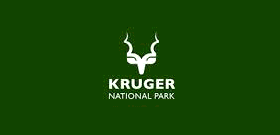 Lioness With Cubs Prompts Temporary Closure of Iconic Kruger National Park Lookout
Lioness With Cubs Prompts Temporary Closure of Iconic Kruger National Park Lookout
In a proactive move to safeguard both wildlife and guests, South African National Parks (SANParks) has instituted a temporary closure of the renowned Matekenyane Lookout Point within the southern reaches of Kruger National Park. This decision follows the confirmed presence of a lioness and her cubs in the immediate area, a development that highlights the delicate balance between conservation priorities and guest experience in Africa’s flagship wildlife destinations.
The Matekenyane Lookout Point, celebrated for its sweeping vistas of the bushveld and its popularity as a rest stop between Skukuza Rest Camp and Tshokwane Picnic Site, has long been a treasured feature on the Kruger circuit. Guests flock to the site for its panoramic views, opportunities to spot game from a safe distance, and the chance to enjoy a picnic in one of the world’s most biodiverse reserves. Its closure, however temporary, serves as a timely reminder of the wild and unpredictable nature of the African safari experience.
The presence of a lioness with cubs in close proximity to visitor areas requires particular caution. Lionesses are known to be extremely protective of their young and may become aggressive if they perceive any threat. By restricting access to Matekenyane, SANParks demonstrates a commitment to maintaining the highest standards of safety for both animals and guests. Rangers are actively monitoring the situation, with a promise to reopen the lookout as soon as it is deemed secure for all parties—a protocol that underscores the professionalism and adaptability of Africa’s leading conservation teams.
For those operating in the African tourism sector, this incident reaffirms the vital role of constant vigilance and flexible management in wildlife-rich environments. The temporary closure also offers an opportunity to communicate the realities of conservation to visitors and partners: wildlife encounters are never guaranteed, and the unpredictability of nature is precisely what makes African safari destinations so compelling. By prioritizing the wellbeing of both the animals and the public, SANParks reinforces trust and enhances the reputation of Kruger National Park as a responsible, guest-focused destination.
Matekenyane Lookout Point holds a special place in the hearts of many who traverse Kruger National Park. Situated along a scenic route that links two major visitor hubs, the lookout provides not only spectacular views but also a tranquil place for guests to relax, stretch their legs, and connect with the landscape. The site is especially favored for its elevated vantage point, which allows for safe observation of wildlife moving through the surrounding plains—a key draw for both first-time tourists and seasoned safari enthusiasts.
This closure serves as a reminder for industry professionals to keep guests informed and to set realistic expectations about the dynamic nature of safari operations. It is also a chance for travel planners and operators to highlight alternative activities and viewpoints within the park, ensuring that the overall guest experience remains rich and varied even during such interruptions. The adaptability shown by SANParks in managing guest access, while respecting the natural rhythms of wildlife, is a practice that can be emulated across Africa’s protected areas.
As updates on the situation at Matekenyane become available, SANParks will communicate reopening plans and safety advisories to the public and industry partners. For now, the message is clear: in Africa’s greatest wildlife sanctuaries, the needs of the animals take precedence, and such stewardship is central to the long-term sustainability and international appeal of destinations like Kruger National Park.
Looking forward, this episode highlights the importance of clear communication, rapid response, and a guest-first approach in all aspects of tourism management. For professionals in sub-Saharan Africa’s travel industry, it is a valuable example of how to balance guest satisfaction with responsible conservation—ensuring that Africa remains the premier destination for authentic, world-class wildlife experiences.
